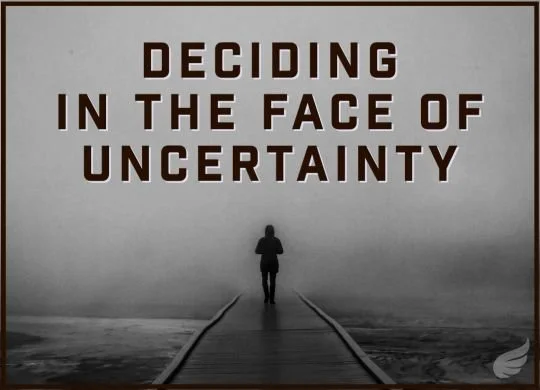Deciding in the face of uncertainty
The need for security, predictability, and control is what ultimately leads to anxiety in the face of uncertainty. Subsequently, our brains perceive a potential threat or danger, triggering stress response.
Uncertainty can be defined as the absence of information about a given situation or phenomenon which leaves us with unknown outcomes, and a lack of control. That's precisely the main source of anxiety associated with uncertainty: the loss of control. This fear is based on the belief that only prediction and planning can provide control, or more precisely, the illusion of control. The more uncertain the situation, the more difficult the projection becomes, and, of course, the more intense the felt uncertainty, the more we tend to reinforce our predictive stance. However, the great lesson from history is that we are more or less incapable of predicting accurately. So what do we do? In the face of uncertainty, the right question is not "how can I predict what will happen?" but rather "what can I do now?". As I wrote in a previous publication, deciding is never an option, it is an imperative necessity because, regardless of the situation, the greatest risk always lies in passivity and inaction.
Gather information, assess what you know and evaluate the gaps in your understanding.
Stay informed, not obsessed. Choose reliable and legitimate sources of information.
Review your priorities and establish new goals accordingly.
Be agile in adapting your strategies and promptly adjusting your responses.
Stay focused on your objectives and avoid getting sidetracked by distractions.
Be creative in exploring unconventional ideas and approaches that could lead to new opportunities.
Maintain regular communication with both internal and external stakeholders, providing them with clear and concise information.
Accept uncertainty, control what you can control, forget about what you cannot change. It’s not the time to think about the “should haves, could haves''.

